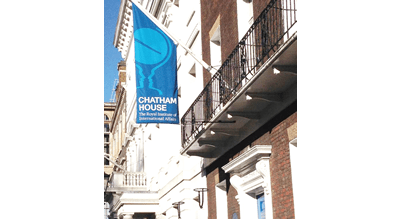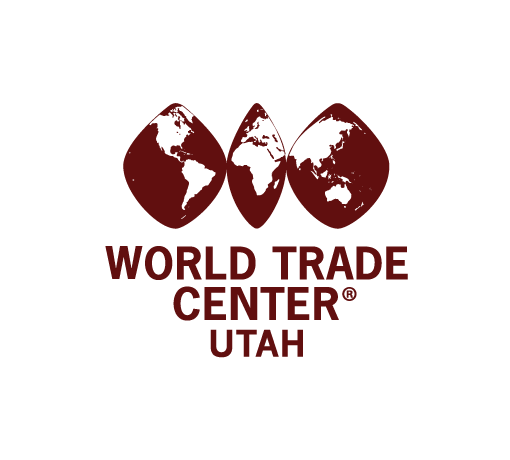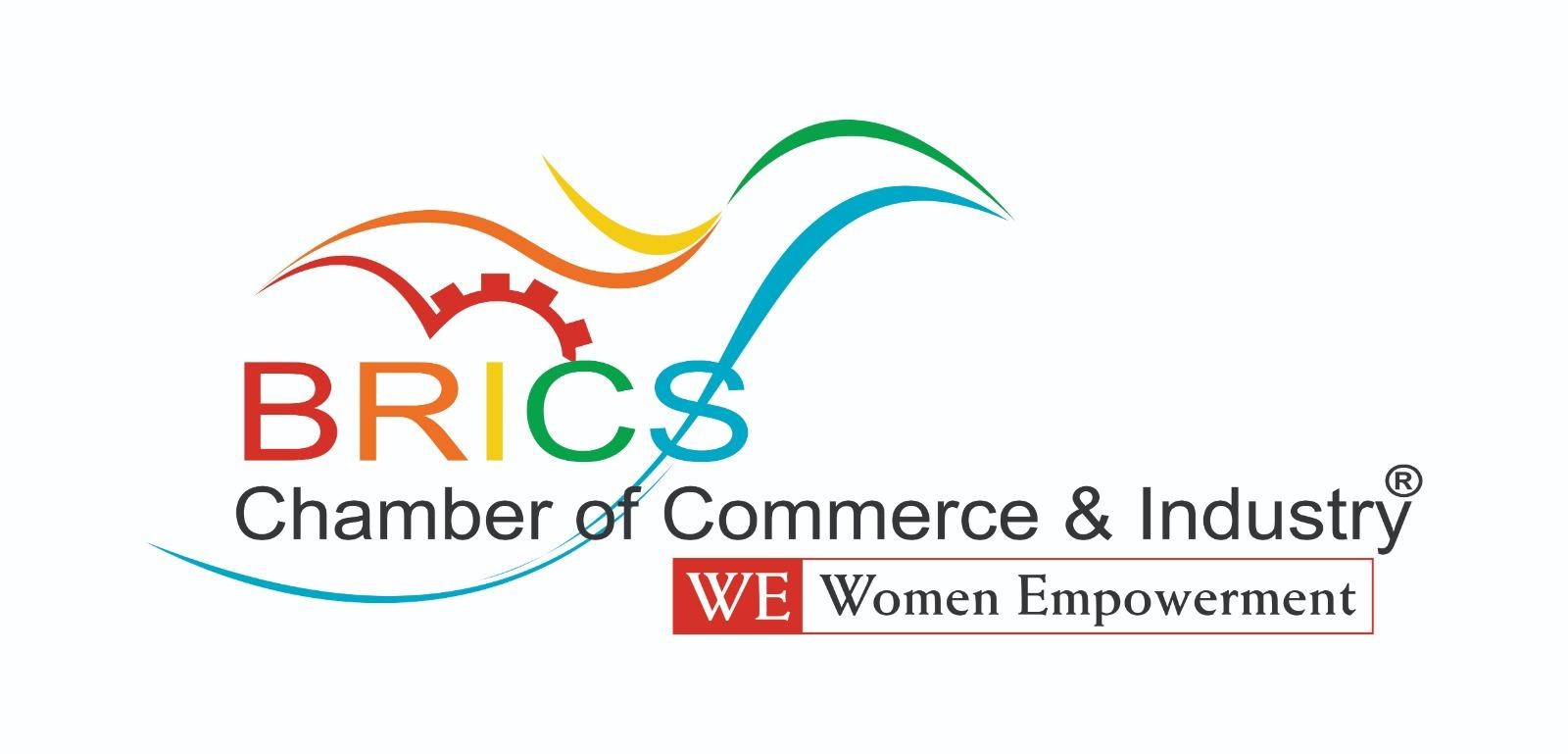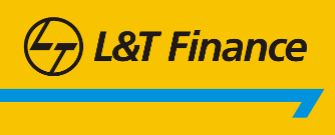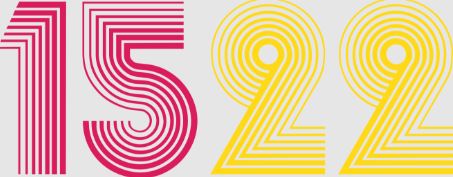[ad_1]
Catalogue of promises as presidential candidates take campaign to London
FELIX NWANERI reports on the recent presentations by some presidential candidates for the forthcoming general election at the Chatham House, London, on the policies and programmes they intend to implement if elected as the next president of Nigeria
Chatham House, also known as the Royal Institute of International Affairs is an independent policy institute headquartered in London. Its stated mission is to provide commentary on world events and offer solutions to global challenges. While there is no doubt that events at Chatham House offer unique access to thought leadership, best practice and insight from world leaders, policy influencers and academics, the institute has turned to a destination choice for the major contenders in the forthcoming presidential election in Nigeria. The reason, however, is not farfetched. The poll to elect President Muhammadu Buhari’s successor is likely to be the mostly keenly contested in Nigeria’s annals given the personalities involved and the state of the nation, so the candidates are ready to seize any opportunity that will help advance their cause. Eighteen candidates are contesting the February 25th presidential election and they include ex-Vice President Atiku Abubakar (Peoples Democratic Party – PDP); a former governor of Lagos State, Bola Tinubu (All Progressives Congress – APC); a former governor of Anambra Srare, Peter Obi (Labour Party – LP) and a former governor of Kano State, Rabiu Kwankwaso (New Nigeria Peoples Party (NNPP). Others are Christopher Imumolen (Accord Party – AP), Hamza Al- Mustapha (Action Alliance – AA), Omoyele Sowore (African Action Congress – AAC), Dumebi Kachikwu (African Democratic Congress – ADC), Yusuf Sani (Action Democratic Party – ADP), Peter Umeadi (All Progressives Grand Alliance – APGA) and Charles Nnamdi (Action Peoples Party – APP). Also on the list are Princess Chichi Ojei (Allied Peoples Movement – APM), Sunday Adenuga (Boot Party – BP), Felix Osakwe (National Rescue Movement – NRM), Kola Abiola (Peoples Redemption Party – PRP), Adewole Adebayo (Social Democratic Party – SDP), Abdumalik Ado-Ibrahim Young Progressives Party – YPP) and Dan Nwanyanwu (Zenith Labour Party – ZLP). While none of the 18 candidates could be dismissed given that politics is a game of the possible, there is no doubt the quartet of Atiku, Tinubu, Obi and Kwankwaso are the major contenders. Already, campaigns for the presidential election, which commenced on September 28, have continued to gain momentum by the day but it has been more of name-calling than debate on issues as the candidates’ criss-cross the length and breadth of the country, canvassing for votes. However, the candidates seem to be looking beyond the shores of Nigeria in their respective for support given recent separate appearance at the Chatham House by three of the four major contenders – Tinubu, Obi and Kwankwaso – to discuss their respective manifestos. Atiku is yet to show up although his campaign trail has equally gone beyond the shores of Nigeria. He met with UK government officials and the Archbishop of Canterbury, Justin Welby, on January
- However, he is yet to respond to an invitation sent to him as revealed by the Director of Africa Programme at the Chatham House, Alex Vines. While some Nigerians have questioned the propriety of the decision to opt for a think-tank in a foreign land to discuss how they intend to govern their country, when there is a similar platform back home – Nigeria Institute of International Affairs (NIIA) – i should be noted that this is not the first time Nigerian presidential candidates would be rushing to Chatham House to discuss their policy papers. The incumbent president, Muhammadu Buhari, was at the policy institute in 2015 to discuss his blueprint ahead of the year’s electons. Interestingly, the Independent National Electoral Commission (INEC) joined the fray as its chairman, Prof Mahmood Yakubu, also mounted the stage last week to discuss the commission’s readiness for the general election. Tinubu: Offers directions on security, economy and foreign policy The APC candidate was the first among the presidential candidates to address the Chatham House. He took the stage on December 5, 2022, accompanied by a delegation that had eight governors and the speaker of House of Representatives, Femi Gbajabiamila, among others. The governors were Nasir el-Rufai (Kaduna), Abdullahi Ganduje (Kano), Dapo Abiodun (Ogun), Babajide Sanwo-olu (Lagos), Abubakar Sani Bello (Niger), Ben Ayade (Cross Rivers), Abubakar Badaru, (Jigawa) and David Umahi (Ebonyi). Also on the entourage were two former governors – Kayode Fayemi (Ekiti) and Adams Oshiomhole (Edo) as well as former deputy governor of Lagos, Femi Pedro and two former commissioners in Lagos State – Dele Alake (Information) and Olawale Edun (Finance). In his presentation, titled: “Nigeria’s 2023 elections: Security, economic and foreign policy imperatives,” Tinubu, not only offered directions on security, economy and foreign policy but highlighted values inherent in democracy. He stated that democratic ideals would be followed under his watch as president. He also said that he will stand firmly against all forms of electoral violence and intimidation, having spent most of his political career in opposition. His words: “I stand firmly against all forms of electoral violence and intimidation. Having spent most of my career in political opposition, I have long fought against electoral malpractice and attempted to extinguish the legitimacy of the choice of voters. I will continue to do so, I promise.” Tinubu also used the occasion to appeal to his fellow contestants to commit to a peaceful election by allowing voters to determine the path of the country. “Let the sovereign will of the people decide the path of our nation. And let this election be determined by voters, making their choice freely.” he said. On his plans for the economy, Tinubu said he will engage the private sector to drive economic development across the country. “My belief that the private sector is the fulcrum of economic progress is evident and documented. However, fundamental flaws with the basic design of our national economy imperil the private sector from playing the role it ought to and adding the value it is capable of. In this instance, the government must act as a catalyst. “We shall do this on all fronts. We will address the conflict between monetary and fiscal policies. Budgeting will be based on the projected spending levels needed to push real annual growth rate above seven per cent, while reducing the unemployment rate, so that we can double the economy in ten years,” he said. On agriculture, the APC candidate said his administration will place emphasis on the use of technology to improve the agricultural sector for better production and contribution to the nation’s economy. According to him, “the present administration has invested heavily in agriculture, providing loans and expanding the country’s total acreage
of cultivated land. We will build on this, but our focus will be on using technology and expertise to accelerate growth and development by providing the critical infrastructure necessary to achieve the commodity transformations in the agriculture value chain. “Roads, rail, access to ports, and storage infrastructure are what we require to radically transform the agriculture sector and increase its value to the nation. Providing these will be the areas of our focus so that the full potential of our agro economy can be achieved, and we can reap the benefits in jobs, improved economic opportunities and increased prosperity.” Tinubu also said the current situation where the Federal Government fixes petrol price is a broken model. “The Federal Government as regulator and operator, and price fixer is a broken model and one that we fully intend to fix if elected. We have privatised power distribution in Nigeria and generation to a certain degree. What we need to do, going forward, is to improve the enabling environment and further reform the legal and regulatory framework to attract more private investments in the sector as we have experienced in the telecom industry,’ he said. On power, he said his administration will be committed to energy sufficiency through the reform of the sector. His words: “Energy supply is another priority. There is no version of the world where Nigeria’s ambition for self can be achieved without solving the problem of how to provide energy to homes and businesses across the country. On education, he said he will provide student loans and reform the Almajiri system in the northern part of the country. He added that he would recruit and train more teachers as a way of boosting education. He also promised to establish technology hubs, where “youths can even develop technological languages on their own and make a better 21st-century approach to governance in Nigeria.” Giving a clue on how he intends to tackle insecurity that is ravaging almost all parts of the country, the APC candidate noted: “I am convinced, as I am sure most of us are, that the broad principles that enabled successive Nigerian governments to interface development and security, and establish an organic link between national security and economic development with regional peace and prosperity is both impeccable and remains relevant. It is an approach which I commit myself to upholding and advancing.” He also used the opportunity to clarify issues over his age, identity and educational background, saying he was born on March 29, 1952. “I was born March 29, 1952; that’s my family record. The record is there. The transcript is there. I’m not claiming another father. I’m a Tinubu proper. If they require a DNA, they should speak. Chicago University has attested that I graduated from the school. The institution recently sent me another certificate. Mobil Oil has attested that I worked with them and left as Treasurer,” he said. The APC candidate, however, delegated some members of his entourage to respond to questions posed to him after his presentation. He said he adopted the delegation method to show what he described as “team-ship.” Governor el-Rufai spoke on how a Tinubu-led government will address insecurity, while the Director of Strategic Communication of the APC Presidential Campaign Council (Aleke), responded to a question on oil theft. Edun, who served as commissioner for Finance during Tinubu’s administration as governor of Lagos State, respond to a question on how he (Tinubu) would boost the economy if elected. Others including Gbajabiamila, Fayemi and APC National Women Leader, Dr. Beta Edu, also answered questions. Obi: Vows to dismantle structures holding Nigeria captive It was the turn of the Labour Party candidate on January 16. Obi who was accompanied by his running mate, Yusuf Datti Baba-Ahmed and leaders of the party leaders, in a paper titled: “Policy and institutional reforms at the heart of the 2023 elections in Nigeria,” said he will dismantle structures holding Nigeria captive and preventing the nation from advancing if elected. He promised to dismantle inefficiency and eliminate transactional policies, which according to breed corruption in government. He also used the opportunity to once more appeal to Nigerians to give him the opportunity to set the country on the path of progress and unity. On how he intends to address the high level of poverty in country, especially in northern part of the country where it is more prevalent, the former governor of Anambra State, noted that improving security, agriculture and education would be some of his top targets for the region. His words: “We have alarming insecurity that has led to loss of many lives and property, significant decline in food and economic output, immense trauma that has compromised the mental health of communities, and in some cases, irredentist pressures and disaffection with the Nigerian project. The economy is in crisis with a troubling debt profile worsened by oil theft of proportion once hard to even imagine, two economic recessions in six years and a lamentable power sector that significantly constrains manufacturing and social life. The Nigerian state is captive to an elite gang-up and a rentier political economy that has concentrated political power in the hands of those who came to power and influence mainly through their own contrivances and not through the affirmation of the people, and therefore, do not have the incentive to serve the people’s interest. “Even after exploiting ethnic and religious cleavages and sentiments to ascend to political power, the very people on whose sentiments they grabbed power often become the primary victims of such political fraud that has rendered Nigeria a failing state with a worsening leadership crisis. Consequently, Nigeria’s democracy has been on the wane, evident in the Afrobarometer longitudinal tracking which reveals low voter turnout and apathy in the current Republic. “How did we (Nigeria) plunge into such economic decline that we have overtaken India as home to the biggest pool of the absolute poor in the world? While the poverty rate in India is about 16 percent, that of Nigeria is about 63 per cent with about 133 million Nigerians classified as multi-dimensionally poor! This is unacceptable and needs to change! What Nigeria needs is a Great Escape as the 2015 Noble prize winner in Economics Angus Deaton of Princeton University elucidated, that what separates poor and rich is attributable to health and education. But what provides quality health and educational systems for a society; committed and focused leadership that can build and sustain public wealth as I was told by Prof, Donald Jacobs of The Kellogg School of Management.” Outlining his policy planks, Obi said his administration will move Nigeria from a country of rent seekers sharing oil receipts and consuming conspicuously, to one that produces, based on vast factor endowments whose value chains can move the nation towards a high employment economy. He added that he will turn the country’s youth bulge to a demographic dividend, rather than today’s harvest of a time bomb of violence and insecurity from the uneducated, unemployed and marginalised. “The growing insecurity in Nigeria is not because the enemy is formidable, it is rather because of lack of focused leadership, ineffective security governance structure and poor coordination from the centre. All these need to be addressed by first, projecting strong leadership signals that allow both state and non-state actors to be mobilised
around a single vision. “Then, by pursuing a robust reform of the security governance structure with a strong coordinating mechanism that assures that all levels of government – federal, state, and local (with three-level policing structure) – are aligned with strong collaboration with partners from both the private sector and development groups to provide the required services and deliver results for every Nigerian. Once this is done, it is also important to have a single, clear, coherent, and consistent communication system to keep the government accountable, citizens engaged and involved in the development process. It is important for institutions to be able to provide strong leadership, coordination capability, partner and engage collaboratively with all relevant stakeholders in an environment that mutually reinforces values.” He explained. On the economy, he said: “The second plank of my policy thrust is to ‘shift emphasis from consumption to production by running a productioncentered economy that is driven by an agrarian revolution and exportoriented industrialization.’ With about 70 million hectares of arable land, we will pursue an agricultural revolution through proper segmentation of Nigeria to activate and harness the factor endowments of different parts of the country for both rapid and mechanized agricultural development and as a pillar for Nigeria’s other sectoral development and industrialization.” He stressed the need to restructure the polity through effective legal and institutional reforms to entrench the rule of law, aggressively fight corruption, reduce cost of governance, and establish an honest and efficient civil service, adding that “reducing the cost of governance in Nigeria is an effective way to fight institutional corruption.” He also promised to streamline government operations for efficiency and effectiveness as well as to ensure that reforms are pursued in a way that protects the livelihood of our hardworking and efficient civil servants. Obi further promised to leapfrog Nigeria into the 4th Industrial Revolution through the application of scientific
and technological innovations to create a digital economy; to build expansive infrastructure for efficient power supply, rail, road and air transportation, and pipeline network, through integrated public-private partnerships, and entrepreneurial public sector governance; to enhance the human capital of Nigerian youths for productivity and global competitiveness through investment in education and research, quality healthcare, and entrepreneurship education and to conduct an afro-centric diplomacy that protects the rights of Nigerian citizens abroad and advances the economic interests of Nigerians and Nigerian businesses in a changing world. Unlike Tinubu, Obi, who personally fielded questions from Nigerians during the interactive session, maintained that equity, justice and fairness will solve the problem of agitations in the country. He also noted that his administration will prioritise securing Nigeria by first engaging all aggrieved groups in the country for talks. Kwankwaso: Pledges to replicate his Kano feat at the centre The NNPP candidate, whose took his turn on January 17, told his audience that he will replicate at the centre, the successes he recorded during his eightyear tenure as governor of Kano State because he understands Nigeria’s issues. In his presentation titled: “Service Delivery and Policy Alternatives,” Kwankwaso blamed country’s woes on choices made by successive governments from 1999. He, therefore, stressed the need for visionary leaders in order to retirn the nation to the path ofg progress. His words: “The leaders that our country needs are not those who will come and do business as usual. We are where we are because of the mistakes and wrong choices made by leaders in the last 24 years. I understand the issues and we have a plan.” He listed his plans to include improving non-oil revenues, improving crude oil production to the Organisation of Petroleum Exporting Countries (OPEC) targets, curbing inflation, preventing corruption, wastages and theft. On the education sector, Kwankwaso promised that the problem of two million out-of-school children would be over in four years as his administration will make all examinations free. “Our revolution in the education sector will be guided by the philosophy that education is a public good. We shall reform the education sector in its entirety. We will eradicate illiteracy in Nigeria.” The NNPP candidate, who boasted that he was more qualified than the presidential candidate of the Labour Party, Obi, said he withdrew from a previous discussion on a possible alliance with the Labour Party because the party was “carried away by media hype,” and built on “ethnicity and religion.” He, however, said that he was ready for discussion with any presidential candidate who has better qualifications than him. “I’m a PhD holder in Civil Engineering. Check your candidate for what he has. I have been in the system for over 30 years now. I was a civil servant for 17 years. I wasn’t a trader. “I was deputy speaker of the house in 1992, I was in the constitutional conference elected delegates. I was governor of Kano State for eight years. I was in the Senate. If anyone wants Kwankwaso to withdraw, let’s bring criteria and select the best,” he said. Yakubu: No going back on polls’ dates January 18 saw the INEC chairman mounting the podium to address the policy institute on the electoral umpire’s readiness for the general election. In a presentation titled: “Nigeria’s 2023 elections: Preparations and priorities for electoral integrity and inclusion,” Yakubu averred that there are neither considerations nor plans for postponement of the polls despite attacks on some of the commission’s offices across the country. He declared: “May I, on this note, once again reiterate our position that the commission is not contemplating, let alone planning, to postpone the 2023 general election. We are going ahead to conduct the election as scheduled.” Yakubu also disclosed that the electoral body has concluded a policy on diaspora voting and expressed the hope that legal obstacles preventing foreign-based Nigerians from voting would be addressed. On the possibility of a presidential run-off, the INEC chairman said the commission is prepared to handle such if no winner emerges after the February 25th poll. He said INEC had always prepared for the possibility of a presidential run-off in the last three elections and this year’s presidential election won’t be an exception. “The truth of the matter is that for every general election, the commission prepares, at least for some time now, in the last three electoral cycles, we also prepare for that possibility. The reason is: Until the constitution was amended, there was only one week for presidential run-off in case it happens. “With the number of registered voters we have, it is almost impossible to print the ballot papers required and the result sheet and deliver them to locations and conduct the elections as required. So, every election since the last three electoral cycle, we also make provisions for the possibility of a presidential run-off in case it happens. If it happens, then we’ll have no issues, and this year is no exception,” he said. Brickbats over candidates’ performance Whereas some of the presidential candidates tried as much as possible to focus on issues during their respective presentations at the Chatham House, reactions by opponents back home on their performances, rekindled the war of words among the various political camps. For instance, the Atiku/Okowa Campaign Organisation, in its assessment of Tinubu’s performance, described it as pathetic and a display of vacuity. The campaign body noted that “Nigerians, including supporters of Tinubu, were thoroughly embarrassed to watch the APC presidential candidate, who earlier showboated with a scripted speech, went blank on the world stage in tragic display of emptiness and inability to personally address questions that were put to him on economy, security and other challenges facing our nation.” Spokesperson of the campaign organisation, Kola Ologbondiyan, in a statement, said the PDP “finds it very appalling that a candidate aspiring to be the president of a nation as complex as Nigeria exhibited an embarrassing inability to coordinate his own thought process to the extent that he could not personally think through issues and address them, but had to direct questions put to him, including those on his health and policies to others to answer.” He added: “Tinubu has confirmed to Nigerians and the world that he has no business contesting the 2023 presidential election; that he is grossly incompetent, completely unprepared for leadership and intends to transfer the onerous task of leading our nation to proxies and a cabal that did not seek votes from Nigerians.” But Alake of the APC, who countered the opposition party’s position, said Tinubu was flawless and articulate during his presentation. “Tinubu proved all naysayers of negativism; all those who left germane issue facing Nigeria and engaged in character assassination wrong. Asiwaju has been applauded and commended by all and sundry. From the report we got, people are saying they never knew he was this articulate, he was flawless”. On why people spoke for the APC candidate during the question and answer session, he said: “That’s one of the innovations of Asiwaju Tinubu. Don’t forget that one of his strengths has been identifying talents and head hunting of the highest order. Anybody who knows Asiwaju would know that he’s primus inter pares in team building and that was what he showed. Those who are against it are ignorant of the dynamics of leadership. “Leadership is not a one man show! Successful leadership is the one that is based on a team that is professional, and that is management acumen. Asiwaju also answered questions personally and directly. He wanted to show the calibre of his team. In fact that style is being copied by some of his opponents. In his address, he spoke for 28 minutes. Nobody helped him to deliver his address. The question and answer was a small part of the engagement. “He sought to display the dexterity of his team which is also an important ingredient in successful leadership. People must get their priorities right. When you want a good leader and one of the requirements of a good leadership is the ability and capacity to build a strong team that is knowledgeable and strong, that is what Tinubu has done”. A similar scenario played out after presentations by Obi and Kwankwaso. The NNPP candidate had said that LP was all about hype, describing the party as a platform built on “ethnic and religious sentiments,” but the spokesman of the LP Presidential Campaign Council, Yunusa Tanko, said the former governor of Kano State missed the point, having failed to see the quality possessed by Obi. His words: “If it is about ethnicity, Kwankwaso is also from a particular ethnic group. If it is about religion, he practices a particular faith too. Where Kwankwaso falls short is that neither he nor his party has the contents that our party and presidential candidate, Peter Obi, have. We have content and most Nigerians know this. “Our candidate was the only one who came out to say, ‘don’t vote for me because I come from a particular ethnic group and don’t vote for me because I practice a particular religion, but vote for me because I have the capacity, character, integrity and compassion to make this country work.’ These attributes were reechoed by the Emir of Kano who spoke in Hausa language telling everyone that Peter has all it takes to govern this country when we visited Kano to interface with Nigerians over there.”
TRY IT TONIGHT!!! —
Abuja Civil Servant reveals (FREE) secret Fruits that Increased his Manh0d size, gives Stronger Erections and ends Premature Erection in 7days…
Related
[ad_2]
Source link


